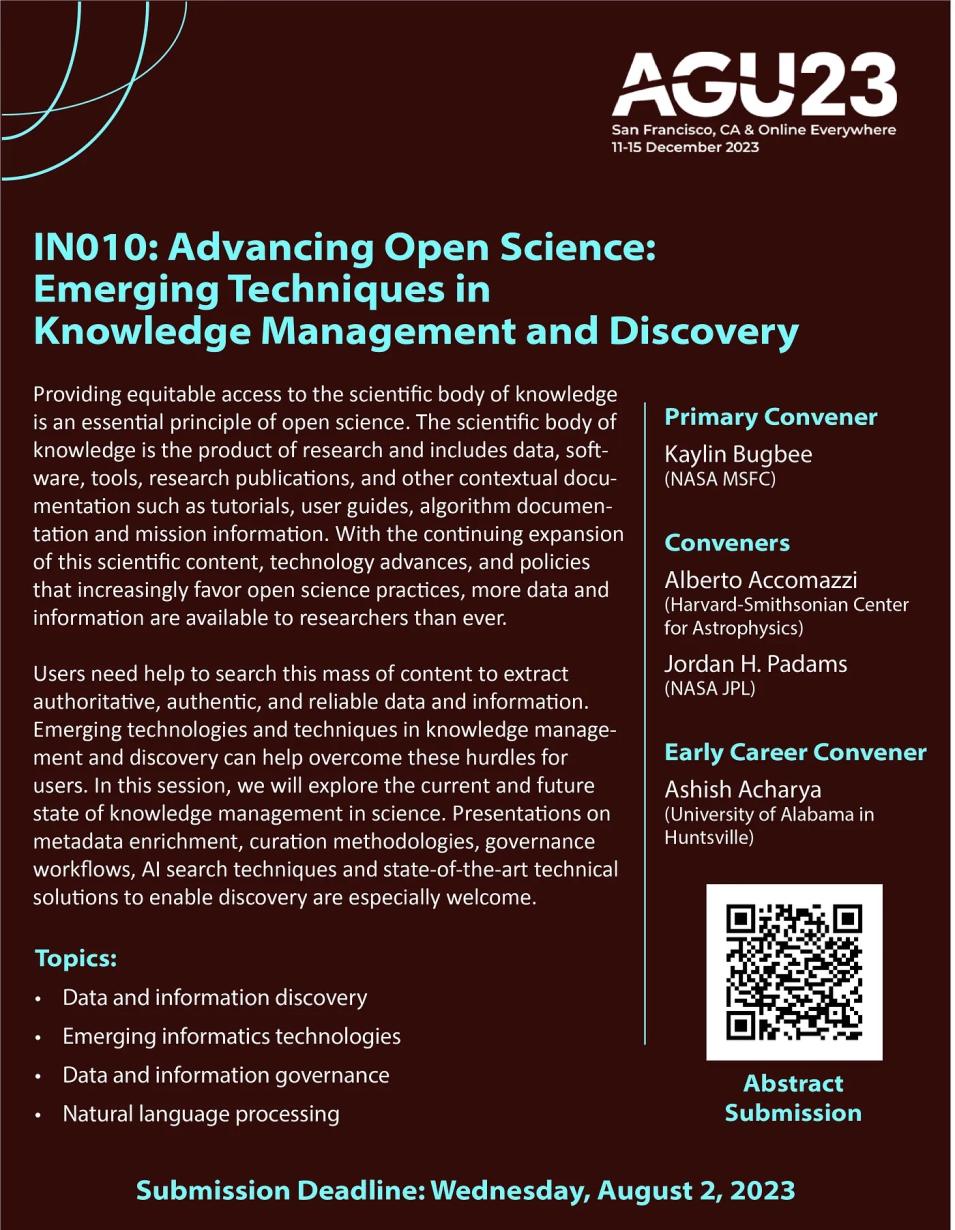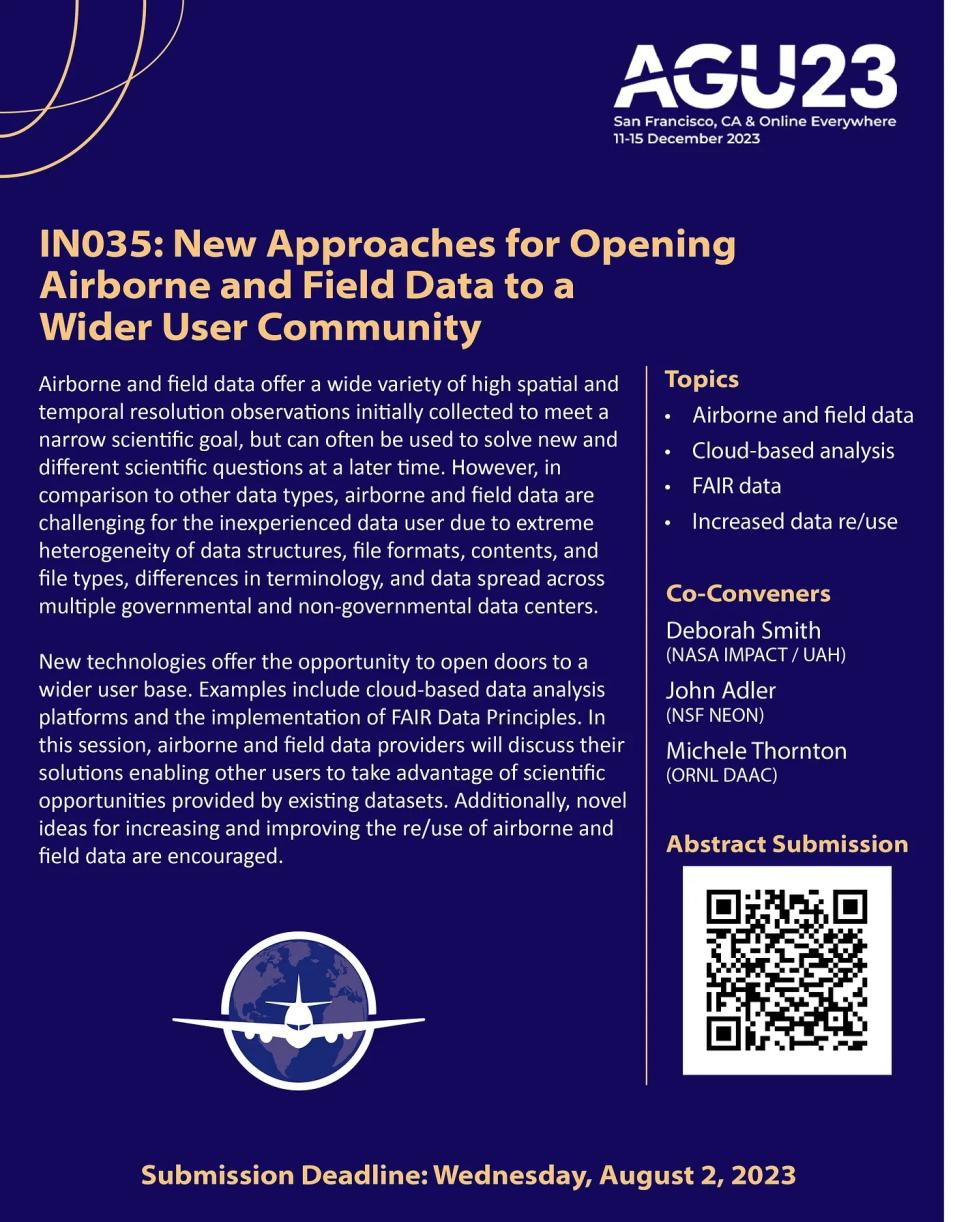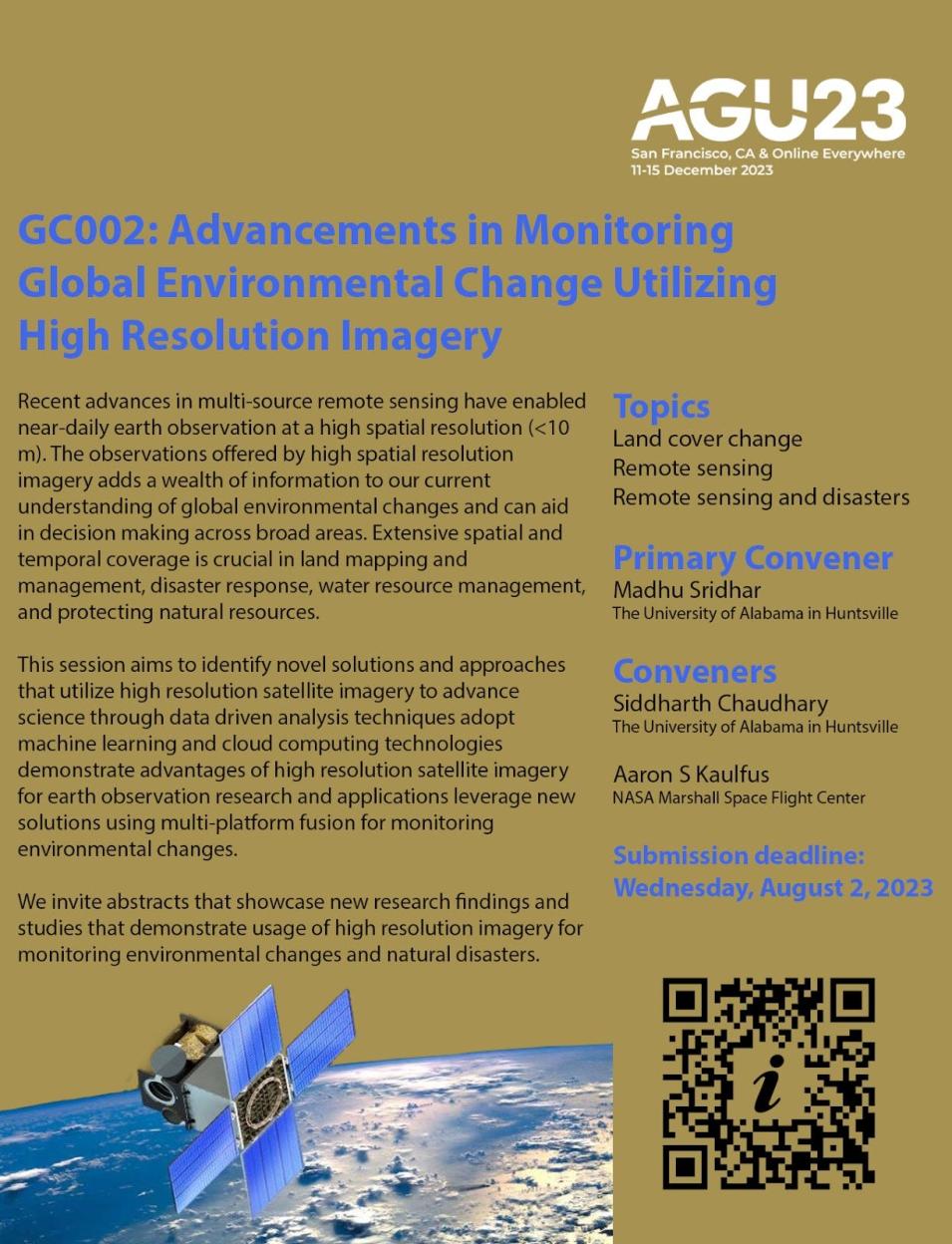Three IMPACT-led teams are convening sessions that resonate with the American Geophysical Union’s (AGU) 2023 fall meeting theme: Wide. Open. Science. These sessions will be accepting abstracts until August 2, 2023 at 10:59 CST. See below for detailed information about each session and abstract submission links.
Kaylin Bugbee, team lead for the Science Discovery Engine (SDE), and Ashish Acharya, the technical team lead for SDE, are co-convening “Advancing Open Science: Emerging Techniques in Knowledge Management and Discovery” with Alberto Accomazzi, a researcher at the Harvard-Smithsonian Center for Astrophysics, and Jordan Padams, a developer at NASA’s Jet Propulsion Laboratory. They are seeking presentations that focus on data and information discovery, emerging informatics technologies, data and information governance, and natural language processing in the context of science data stewardship. Abstracts can be submitted here for this session.


